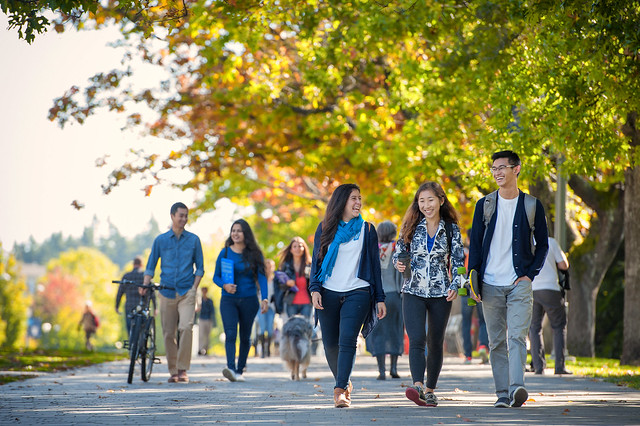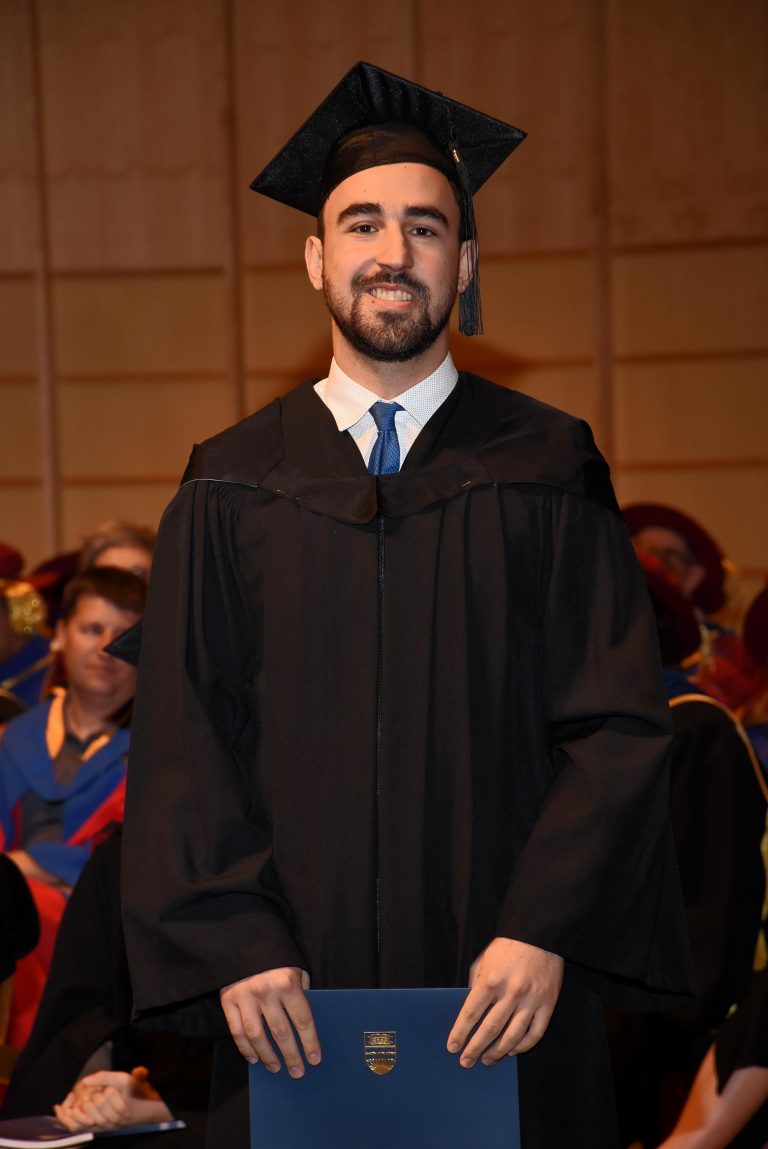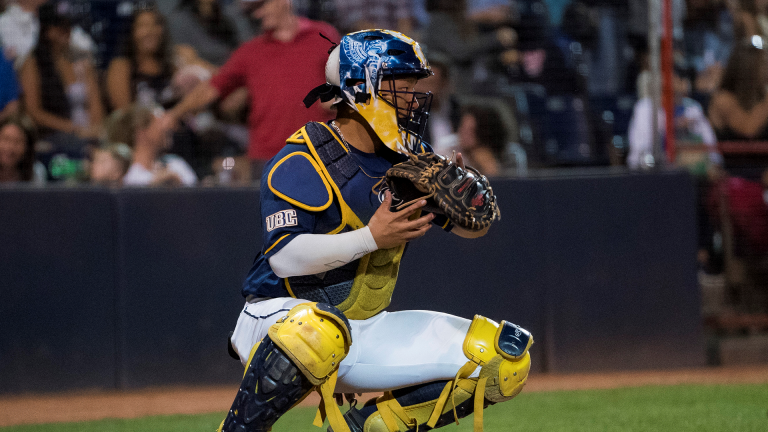Sept. 17, 2019 – Dr. Guy Faulkner and PhD candidate Negin Riazi sit down with Global News BC to talk about the premiere of the documentary, “Running Free: Children’s Independent Mobility” and the benefits of letting children ‘run free’. Watch it here!
New Paper Out
Sept. 13, 2019 – New paper out by Dr. Lira Yun, PhD student Matthew Fagan, and Dr. Guy Faulkner examining whether changes in physical activity predicted reductions in depression. Read it here!
New Paper Out
Sept. 13, 2019 – New paper out by PhD candidate Krista Glowacki and Dr. Guy Faulkner outlining the development of the new Exercise and Depression Toolkit. Read about it here!
Exercise and Depression Toolkit Release!
Sept. 9, 2019 – The Exercise and Depression Toolkit was released on September 1st, 2019. This resource was developed by PhD candidate Krista Glowacki, Dr. Guy Faulkner, and in collaboration with community partners. Check out the website for more information and to download the toolkit: https://exerciseanddepression.ca/
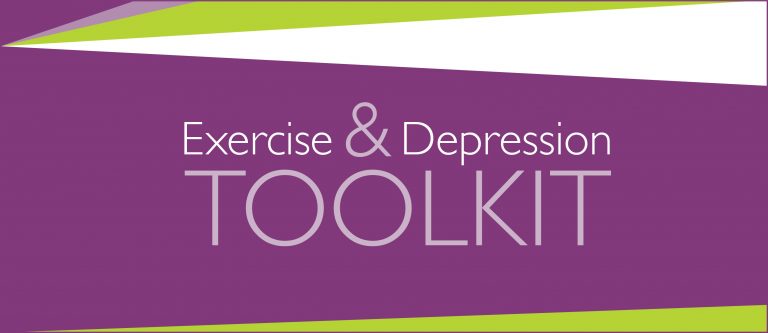
Curry in Surrey
Aug. 26th, 2019 – The Pop-PA Lab enjoying the last days of summer with delicious curry in Surrey!
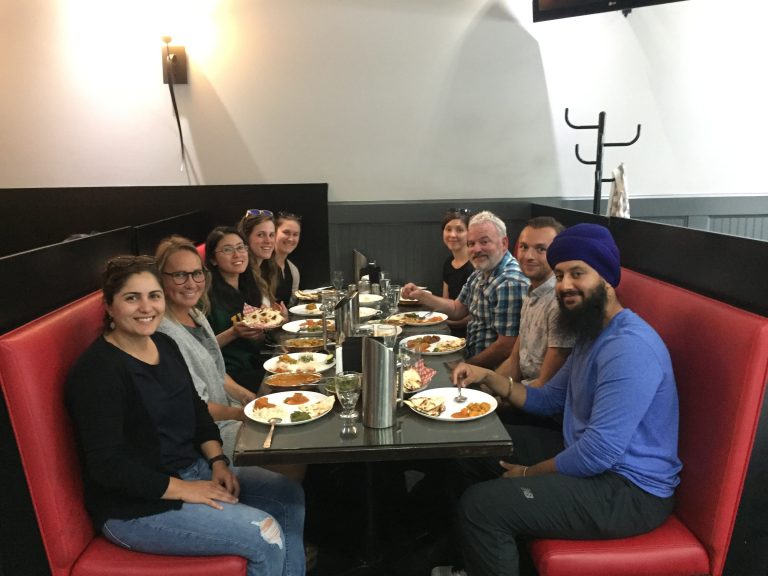
From the Director’s Desk
Esteemed KIN Alumni,
Summer is drawing to a close, and a new academic year begins. It has been a busy summer. Although many left campus for the summer, the School had a full house with international students who attended the month-long Vancouver Summer Program (VSP) in Kinesiology.
I’m proud to say that the KIN spirit thrives amongst our alumni, as almost half the classes of the Summer Program were taught by members of our alumni and half were PhD students. So many thanks to our alumni, our students and the School’s International Affairs Coordinator, Carlos Cantu, for ensuring a successful collaboration amongst those who share a passion for the study of human movement!
The School of Kinesiology kicked off the summer with a successful panel discussion on the High Performance Coaching program titled, Creating Champions (listen to a podcast of the event when you click on the link) in June, where the Canadian Institute for Sport, Pacific announced their intention to donate $25,000.00 to start a much-needed endowment towards scholarships for students in the professional Masters in High Performance Coaching. We are very appreciative for this support!
In August, the School’s Origins of Balance Deficits and Falls research cluster supported by the VP-Research held its first Summer Course on ‘wearable sensors’ attracting ~40 students from across Canada and internationally. We congratulate them on their successful program!
In a continued effort to better get to know our alumni community, I will host an after-work ‘meet and greet’ in Toronto on December 11th, 2019, where I look forward to meeting you at an informal gathering. If you are interested in attending please send an email to kin.alumni@ubc.ca to reserve your spot at the table.
Finally, congratulations go out to faculty emeritus Dr. Doug Clement, co-founder of UBC Sports Medicine and faculty member in the School for many years, for winning a 2019 Alumni Achievement Award for his contributions to the community. Most recently, Doug has established the Rainforest Trail Run, a celebration of the health and vibrancy of the Indigenous cultures on whose territory we live, work, and play. The inaugural 5k run takes place on September 29th at Swangard Stadium, in Burnaby. I’m pleased to say that the School of Kinesiology is a supporting partner of the run. We encourage all our alumni to get out and participate!
Dr. Rob Boushel
Professor and Director
UBC School of Kinesiology
Lusk, Serena
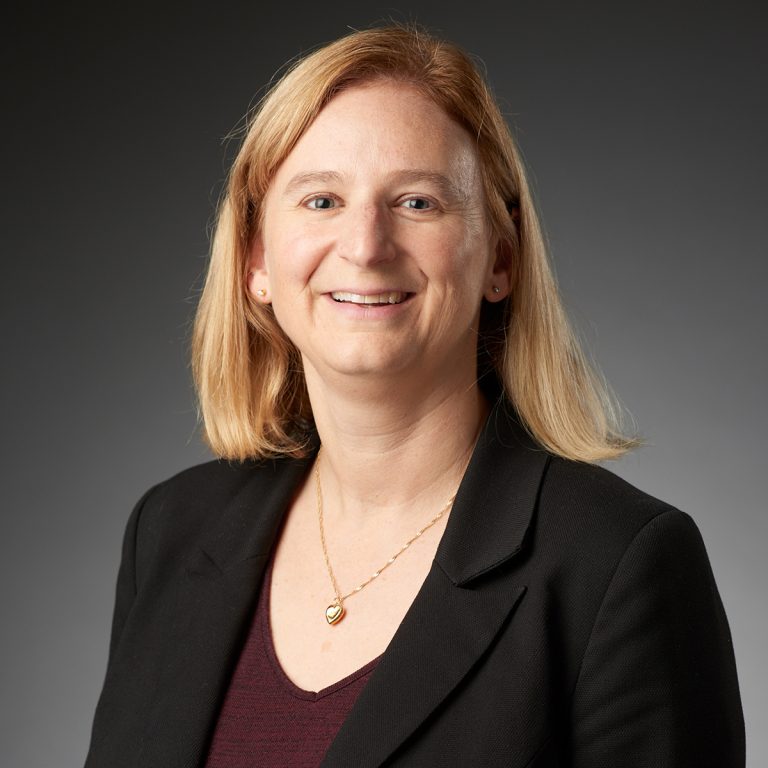 Serena Lusk, BHK 1997, found her beginnings in recreation as a competitive swimmer in her early teens. As a junior swim coach at age 13 and a lifeguard at 16, Serena knew early on that she wanted to be involved in sport and recreation as a career. Her jobs as a swim coach and a lifeguard provided opportunities for a high level of responsibility and accountability at a young age and have helped shape her approach to work today.
Serena Lusk, BHK 1997, found her beginnings in recreation as a competitive swimmer in her early teens. As a junior swim coach at age 13 and a lifeguard at 16, Serena knew early on that she wanted to be involved in sport and recreation as a career. Her jobs as a swim coach and a lifeguard provided opportunities for a high level of responsibility and accountability at a young age and have helped shape her approach to work today.
When she entered her undergraduate years at UBC, Serena sought out the Leisure and Sport Management Program. With support from KIN faculty and staff, particularly from Professor Emeritus Dr. Jack Kelso, her first year faculty advisor, Serena enjoyed a number of valuable experiences in recreation and intramural activities, including working at the UBC Aquatic Centre and swimming on the UBC Masters swim team.
Serena’s early career was sparked by an internship opportunity with Badminton BC. This experience eventually lead to a full time administrative position with Swim BC, where fellow KIN Alum Ken Radford (BRE 1981, MPE 1988) became an excellent role model in terms of leadership and team-building. Leaving Swim BC to pursue an MBA at the University of Oregon’s Warsaw Center for Sports Business was a difficult decision for Serena, but one which lead to further learning beyond the sport and recreation field, and a widening of career opportunities.
Since 2005, Serena’s career has been with the City of Richmond. The organization has provided progressive opportunities for her in a variety of areas and she currently leads one of five divisions in the City: Community Services. Community Services includes Parks, Sport, Recreation, Arts, Culture, Heritage and Social Development. Together, these disciplines contribute to overall Community Wellness – a passion for Serena – and she has been fortunate to be able to be invited to speak worldwide about Richmond’s healthy, active, caring and connected community.
As a resident of Richmond, with her husband and two children, Serena has the benefit of seeing the changes she and her team create in the community, which inspires her every day!
Recap: UBC vs. University of Tokyo Baseball Classic | August 13th 2019
Thank you to all those who attended the UBC vs. University of Tokyo Baseball Game on August 13th 2019, the feature game of UBC’s first ever International Collegiate Baseball Classic! The UBC Thunderbirds defeated the University of Tokyo 8-2 in front of a crowd of 3,300 — the Baseball Classic marked the first time that a Japanese Varsity Baseball team has ever played on Canadian soil.
Game day started out with the School of Kinesiology holding a demo and seminar on the science of sport for all tournament players and coaches from Japan and the U.S., led by Rob Boushel and Carlos Cantu.
The School of Kinesiology has a long history with UBC’s Baseball program — the Thunderbirds played competitively in the PNW since the 1950s, but disbanded in 1966 due to budget cuts. It was only recently that the Thunderbirds Baseball team was rebuilt. KIN Alum Terry McKaig, BHK 1997, became Baseball’s head coach in 2000 and shaped the program into what it is today.
The UBC Baseball brand now involves youth player clinics, camps and training programs, and is home to the Vancouver franchise ‘UBC Thunder’ of the British Columbia Premier Baseball League. Today, the Thunderbirds are the only Canadian University competing for a US National championship in college baseball. UBC is producing some impressive professional baseball talent, with some 27 Major League draft picks and non-drafted free agents.
To read the recap of the game, click here.
